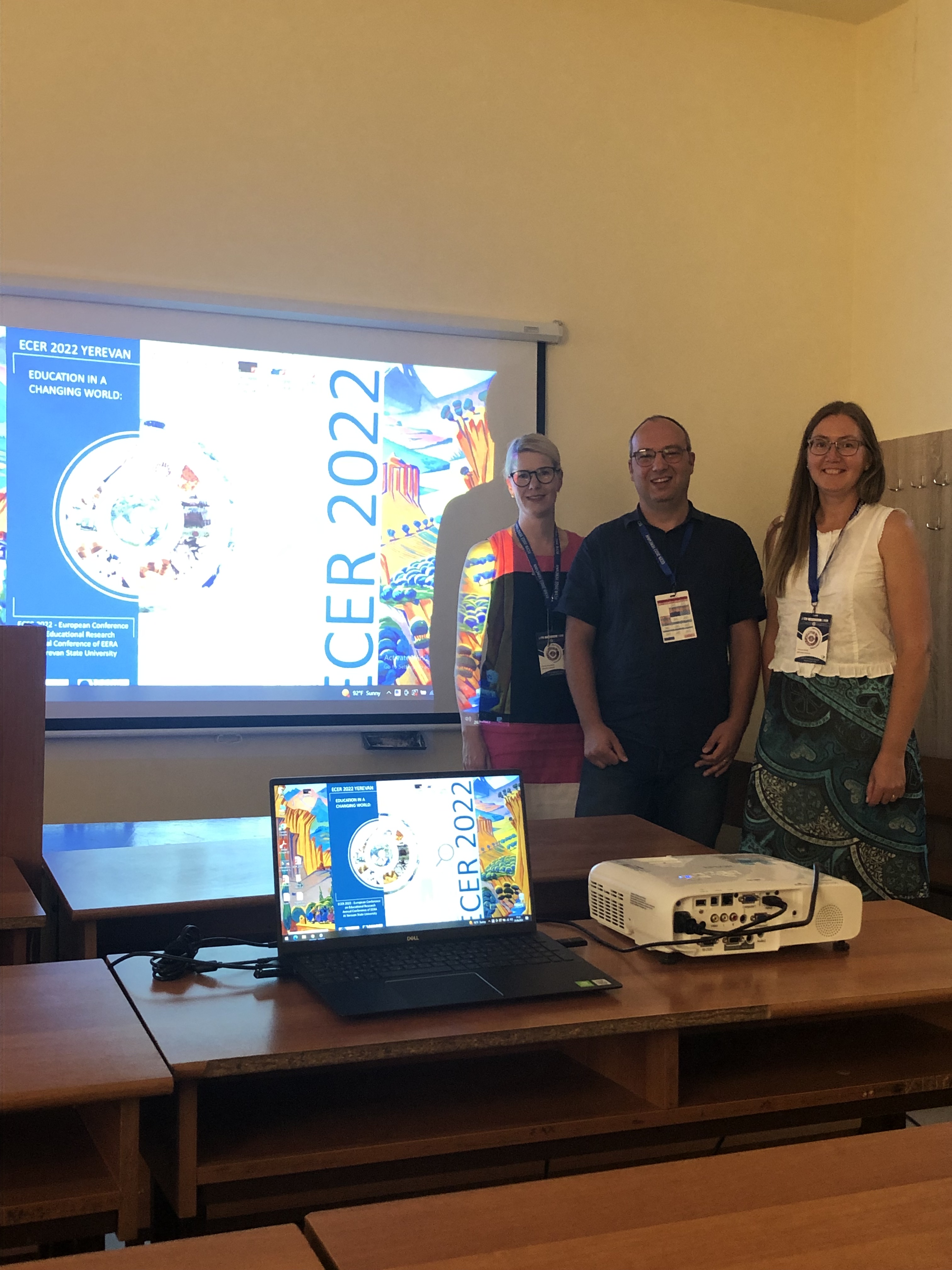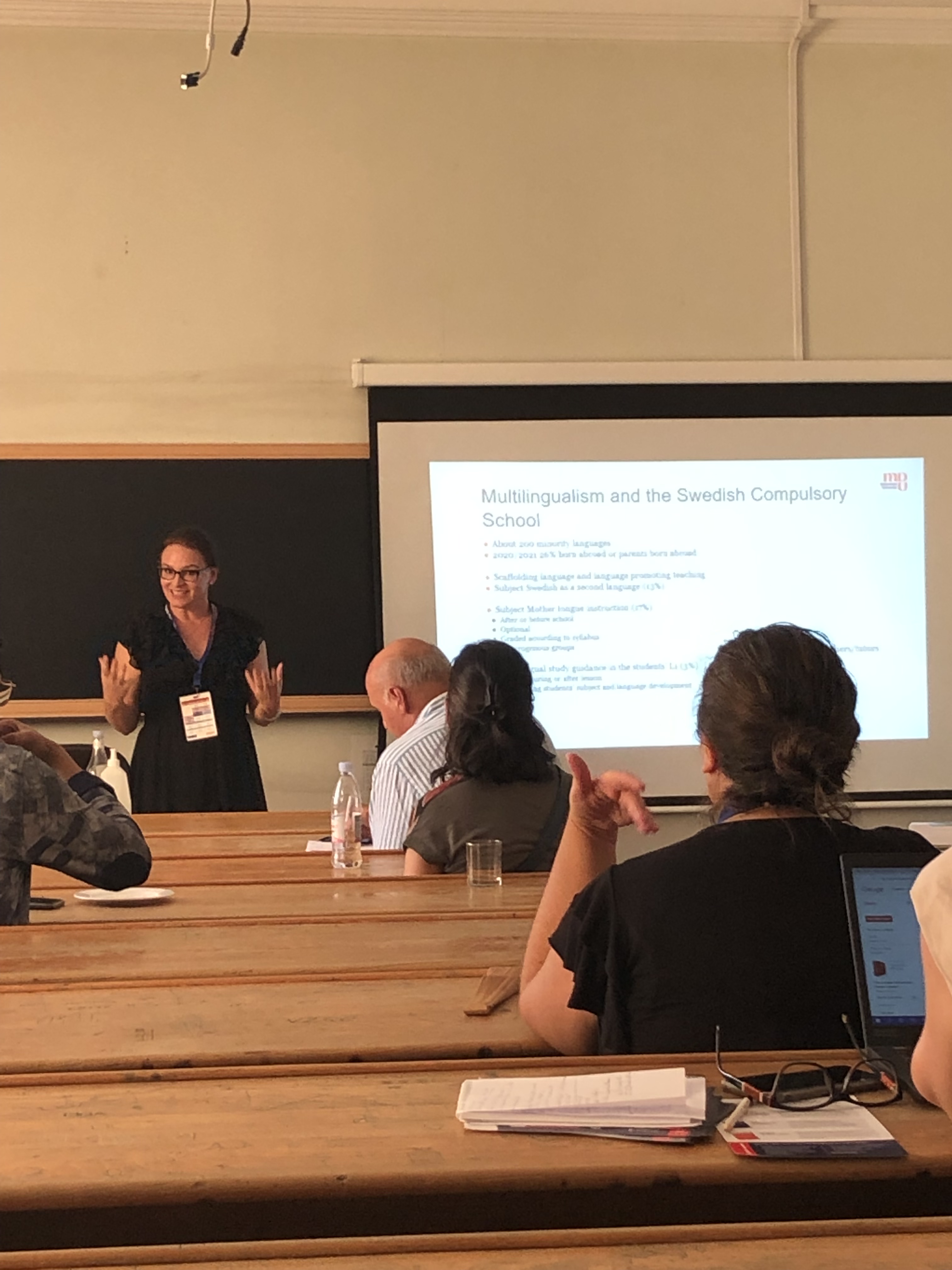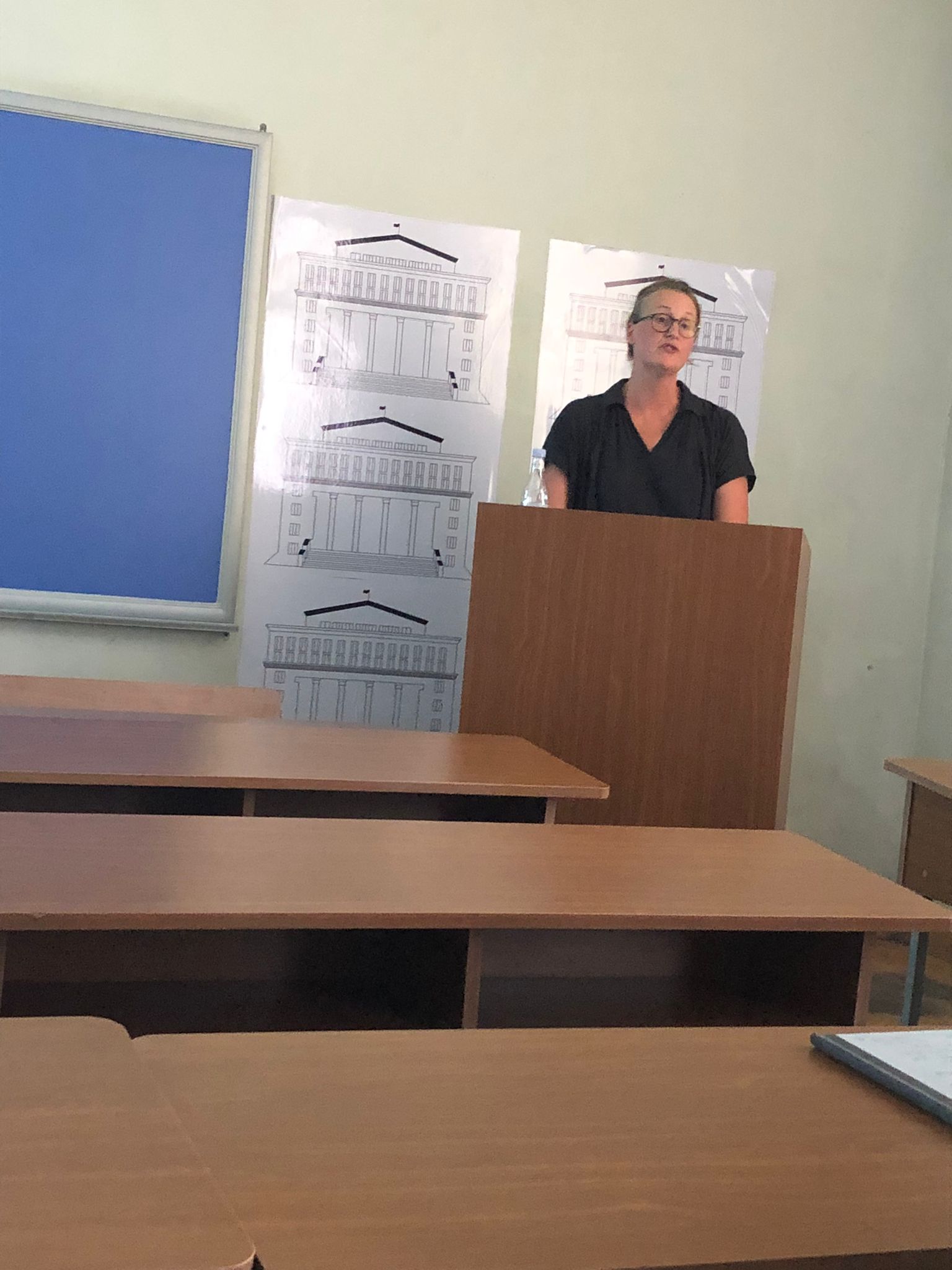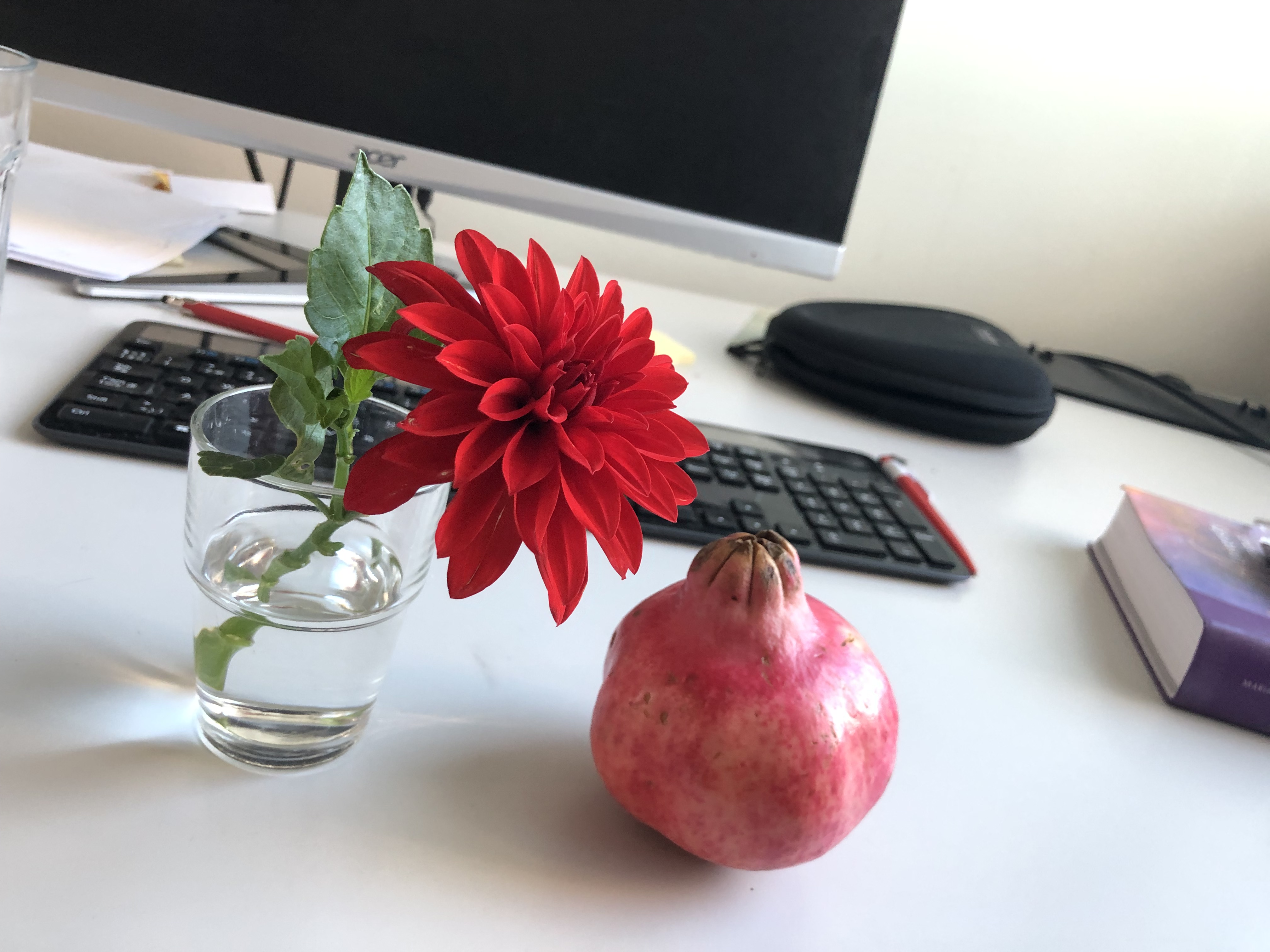I am one of those who think that one needs to balance “big” and more focused “small” conferences during a year: you can dig in deep in more subject/methodology/field specific small conferences, and map the broader field in a big one. For me, the European Conference on Educational Research (ECER) 2022 in Yerevan was a big one: the whole field of education! Even language education conferences or big applied linguistics conferences (e.g. AAAL) are massive, but what was I doing in Yerevan? I will start from the beginning of the story.
On the 21st of December, 2021, we decided to have a conference abstract writing workshop under Elin Sundström Sjödin‘s leadership, organised by SOLD (Language and Literature) research environment. After a successful workshop and rounds of peer-feedback, all of those who submitted an abstract (1300 words!) got accepted: Christa Roux Sparreskog, Simon Sjölund, Elin Sundström Sjödin, Annaliina Gynne, Maria Larsson, and Olcay Sert. The process of being part of the workshop and engaging in peer-feedback was a great experience for all of us. We are a mixture of experienced and novice academics, and we represent diverse departments, subjects, and fields: Mathematics education, Swedish, English, Swedish as a second language, special education, critical literacy, and what not. The question after we had learned that we got accepted was: “Are we going to Yerevan?”. Yes, we did go to Yerevan, and we are very happy about it. 
We represented Mälardalen University successfully, in my humble opinion. There was great interest in our talks, and we had the opportunity to attend many good presentations. Were they all mind blowing? No. If you are used to small but very focused, methodologically strong conferences, you may get disappointed in massive conferences sometimes. It cannot all be excellent. Nevertheless, it was great to experience the wide range of topics in our mother field, education. We presented research on (1) mother tongue teachers and their multilingual students in need of special education support (Christa), (2) a collaborative school development and research partnership (Simon), (3) students’ critical and creative exploration of their positions in society (Elin), and (4) digitally-enhanced reflections and how they contribute to the development of classroom interaction practices over time (Annaliina, Maria, and Olcay – representing the MIND Research Group). Our little hub is diverse, but I fell in love with this diversity. I have to confess that I am not a big fan of going to conferences with gangs as it may limit the network you can develop sometimes. But no, this was excellent. We were becoming THE network with this conference, and we could all still do our individual gigs. 



Isn’t this what Europe is supposed to be about? Coming together, respecting and appreciating diversity, becoming all different but all the same? It was also a great idea that ECER was organized in beautiful Yerevan, in line with the European spirit to go beyond conventional borders of Europe, to support one another, to learn from each other. We were very happy with the fact that the event took place in Yerevan. We enjoyed every moment in Yerevan during ECER; from academic, professional, cultural, and very personal perspectives. Who would not want to be there? Well, apparently, the publishers did not. I was very disappointed when I noticed that almost none of the big publishers were represented in Yerevan. Routledge, Elsevier, CUP and OUP (Please don’t blame the Brexit), Wiley, SAGE. Where were they? During a time when education all over the world was hit badly; during these days when we need dialogue, collaboration, support of all kind more than any other day in recent history. Where were they? This is why I want to congratulate Verlag Barbara Budrich, Brill, Waxmann, and Bloomsbury academic: you stole hearts. And we should not forget MAXQDA, which had a good level of representation too.
ECER went beyond Europe’s political borders. And we, as representatives of relatively smaller subjects within educational sciences and language sciences, also went beyond our borders and spent time in a safe zone. We came back home, to Västerås, with new insights, cultural understandings, academic inspiration, and more. We also became a stronger group, and we know that we will be working together for years. Pomegranates became the symbol of our group during this conference trip, and like pomegranates, we will be one but many, and many but one. 


Reblogged this on Mälardalen INteraction & Didactics (MIND) Research Group.
LikeLike